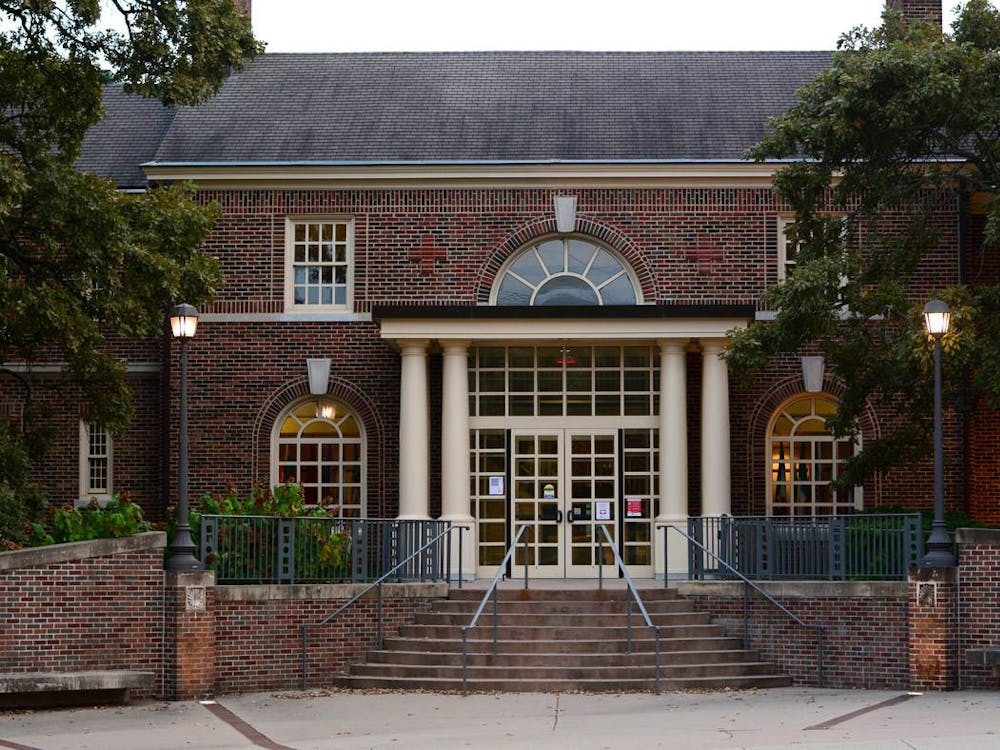By Christina Romine, For The Miami Student
Paying for college isn't easy, and affording high out-of-state tuition prices doesn't make the expense any cheaper. But for veterans and their family members, the financial weight of college recently got a little lighter.
The Veterans Choice, Access and Accessibility Act (VCA), which was signed into law by President Barack Obama in 2014, allows recent veterans and their dependents to access benefits for college education. The VCA's Section 702 serves as the latest program to ease the financial burden of college for veterans and their dependents by providing in-state tuition rates to qualifying individuals.
Junior Phillip Carr, president of the Student Veterans Association at Miami, is a veteran of the United States Army.
"Ohio has a number of long-standing programs to assist veterans' education," said Carr. "As a whole, [the VCA] has a big impact, but not as much of an impact here because Ohio uses the Ohio G.I. Promise."
The Ohio G.I. Promise, which was passed in 2009, allows veterans and their dependents to bypass the 12-month residency requirement to pay in-state tuition. The law has one caveat: the veteran has to actually move to Ohio. Veterans still living out of state could not send their dependents to Ohio schools and pay in-state rates.
That stipulation makes Section 702, though only a small part of the VCA, a game changer.
Under Section 702 of the VCA, public institutions nation-wide must now provide in-state tuition to recent vets and their dependents using the post-9/11 G.I. Bill. The G.I. Bill, passed in 2008, covers up to full tuition and fee payments for in-state students at public institutions. Section 702 releases qualifying veterans and their dependents from bearing the costs of out-of-state tuition, or from the burden of moving to obtain in-state tuition.
Kathy Ramsey, assistant director at One Stop for Student Success Services, said over 300 Miami students currently use benefits from the G.I. Bill and that about 20 students she knows of will qualify for in-state tuition under the VCA.
"Every student that may be eligible will be contacted by Enrollment Management and Student Success to determine their eligibility," Ramsey said. "Students identified as possible covered individuals will be contacted via e-mail and U.S. mail with an appropriate application."
Senior Amanda Burke's father served in the military for over 25 years. For her, the G.I. Bill opened up a world of possibilities.
"If I had not had the G.I. Bill, I would not have been able to pay for the last two years of college," said Burke. "Miami is really expensive, even for in-state tuition."
Enjoy what you're reading?
Signup for our newsletter
Currently, tuition at Miami for an out-of-state resident is $30,233 per year. The tuition costs for an in-state resident are nearly half that amount, with in-state students paying $13,533 per year. Covered individuals will be able to use this law to pay for both undergraduate and graduate courses at Miami.
The law states a student is eligible to receive the added benefits of the VCA if he or she is a veteran who was discharged or released from service less than three years before the date of enrollment in a course. A student is also eligible if he or she is a dependent of a veteran who was discharged or released from service less than three years before the date of enrollment.
This law does not cover anyone who is still serving active duty or the dependents of an active duty service member.
Both the university and the Veteran's Administration monitor a student's eligibility.
Universities must be compliant with the law in order to receive their G.I. Bill certification. The Veterans Administration will not issue payments for students who are eligible under the G.I. Bill unless the school is also compliant with Section 702 of the VCA.
"[The VCA] gives more of a probability of receiving in-state tuition and opens a lot more doors for veterans to get education in states that don't offer as many opportunities as Ohio," said Carr.




